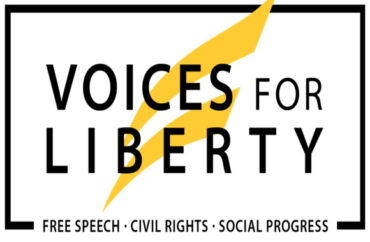
Campus leaders must protect free speech and combat antisemitism by ensuring their policies are always enforced in a consistent manner, scholars said Friday at a free speech symposium.
“Jewish students should be treated equally and fairly with other students,” law Professor David E. Bernstein, executive director of the Liberty & Law Center at George Mason University, said during the panel discussion at GMU.
The problem is, other student groups and identities better aligned with diversity, equity and inclusion concepts are given more protections and concern by administrators and the “DEI bureaucracy,” said the scholars.
Samuel Goldman, associate professor of political science at George Washington University, said far too often universities hold double standards in how they decide to implement policies or weigh in on controversies.
“My instinct is to demand that they enforce every policy they have consistently and rigorously and see if they’re really willing to do that,” Goldman said. “My suspicion is that they will find that so difficult that they would rather modify the policies than meet the demand.”
The panel was focused on an academic paper titled “The Jewish Dilemma in Supporting Free Speech and Countering Antisemitism on American College Campuses,” co-authored by Bernstein.
On Friday, Nov. 15, a panel of scholars discussed how to effectively protect both free speech and Jewish students in higher education. The panel was part of an all-day Annual Voices for Liberty Symposium hosted at the Antonin Scalia Law School at George Mason University.
Kenneth Marcus, chairman of the Louis D. Brandeis Center for Human Rights Under Law and a law lecturer at George Washington University, said the panel’s topic comes at a vital time due to the rampant antisemitism seen on colleges nationwide over the last year.
“This is an important moment to be discussing this issue, because over the last year and a half we have certainly seen far more and worse antisemitic incidents in higher education than ever before,” Marcus said.
Marcus said those most passionate about protecting free speech are also passionate about protecting Jewish students and preventing antisemitism. He specifically pointed out that President-elect Donald Trump has signed executive orders both on combating antisemitism and protecting free speech.
“I would argue that the challenge is not to figure out when free speech should bow to equal protection and when equal protection should bow to free speech, but rather how [to] accomplish both of them at the same time,” Marcus said.
But Bernstein pointed out a double standard in how university leaders are quick to condemn events on campus that serve the “DEI bureaucracy” yet are “completely silent when Jewish students are attacked verbally.”
He gave an example of Northwestern University’s reluctance to condemn hate speech against Jewish students on campus, despite quickly condemning racist actions toward other groups in years past.
Complicating matters, he said, there is a common trend of university professors viewing themselves as both activists and scholars.
“If you’re an activist, go work for an activist group, that’s not your job as a professor,” said Bernstein. “To me, that’s not the purpose of a university.”
He said his preferred solution for protecting Jewish students on college campuses while protecting free speech is to “make universities apply their rules evenly.”
“Even grossly offensive speech that makes people uncomfortable should be protected on campus” he said, adding that “the ultimate ideology behind cracking down on hate speech is ultimately illiberal.”
Bernstein added that universities often published statements about public issues almost always from a left-leaning perspective, until the Oct. 7 Hamas attack on Israel, in which universities decided to begin implementing institutional neutrality.
“You can’t only serve certain ideological masters, you have to be neutral in how you denounce things,” he said.
Goldman said that university presidents such as Claudine Gay would be entitled to their opinion that “River to the Sea” is protected speech if they had been consistent in protecting speech in years past. Whether or not colleges implementing institutional neutrality are doing it for the right or wrong reasons, he is content they’ve at least reached that conclusion.
“The ultimate pursuit of a university,” he said, “is the pursuit of knowledge or some kind of understanding.”
Bernstein said “university bureaucracies” simply do not want to treat all students equally, so his goal in writing the paper is to help create a “free speech environment that includes everybody” on college campuses.
MORE: Hundreds of ‘wanted’ posters targeting Jewish faculty glued to walls at U. Rochester
IMAGE: Voices for Liberty
Like The College Fix on Facebook / Follow us on Twitter






Please join the conversation about our stories on Facebook, Twitter, Instagram, Reddit, MeWe, Rumble, Gab, Minds and Gettr.